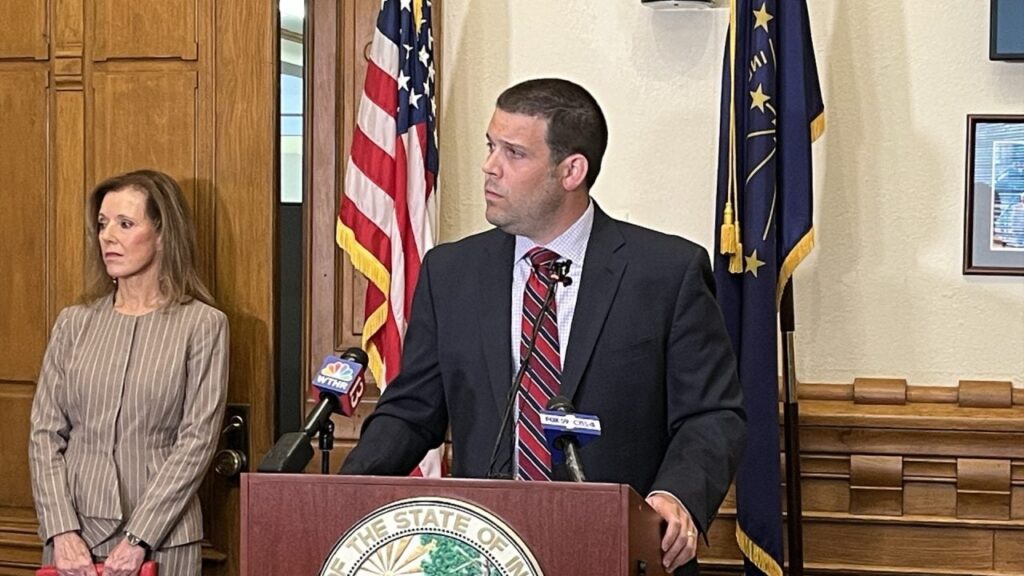Indiana reports better-than-expected revenue
INDIANAPOLIS (WISH) — The state’s top money managers on Tuesday said strong sales tax returns and last-minute budget cuts helped avert a major loss of revenue due to tariffs.
State Budget Director Chad Ranney said Indiana finished the 2025 budget year on June 30 with a general revenue surplus of $336.9 million. That’s down significantly from the $577 million budget analysts predicted in December but significantly better than April projections, which ranged from $177 million down to $14 million.
Lisa Hershman, secretary of the Office of Management and Budget, said, “After that April 16 forecast, as we started working through the numbers with my teams, we were clinging, I would say, and hoping for a $14 million surplus. I’m proud to say we far exceeded that.”
Those predictions were based on uncertainty over the impact of President Donald Trump’s tariffs. Ranney said a combination of $78 million worth of agency spending cuts and strong sales tax revenue from the Indianapolis 500 and the NBA Finals helped make up the difference.
Ranney said the revenue numbers mean the state can maintain its level of services and hold on to its AAA credit rating, which allows it to borrow money at lower interest rates.
Despite the better-than-expected revenue, Ranney said the state is still on track for a $2 billion revenue shortage over the next two budget years. State budget analysts estimate a revenue surplus of $424.6 million for Fiscal Year 2026, which began July 1, and just $270.2 million for FY 2027, which begins next July. Those projections drove state lawmakers’ efforts to cut spending in the budget they approved during this year’s legislative session.
Democrats said budget cuts to stay ahead of the revenue shortage unfairly penalized those most in need, particularly children and seniors. Sen. Fady Qaddoura, D-Indianapolis, who serves on the State Budget Committee and the Senate Appropriations Committee, said the state could have avoided a revenue shortage in the first place if past Republican administrations hadn’t spent so much on the Indiana Economic Development Corp. or on expanding school choice vouchers.
“Technically and mathematically, the 2025 fiscal year ended with a breaking-even, almost, scenario, but the story that it doesn’t tell: At what expense? Who paid for it?” he said. “The story to me about the 2025 fiscal year is that this continues to be similar to federal policy, a state budget that caters to those who have the means and neglects those who do not have the means.”
Qaddoura and his House counterparts, Reps. Gregory Porter and Ed DeLaney, both Indianapolis Democrats, said they fear the impact the new federal budget will have on Indiana’s finances. The budget bill Trump signed on July 4 makes significant changes to Medicaid payments to the states and requires the states to cover some of the costs of delivering food aid under the Supplemental Nutrition Assistance Program. Porter said he feared that could compound the state’s financial problems.
Gov. Mike Braun on Tuesday afternoon said he does not share those concerns. He said the state will be able to make up the difference in those services the federal government asks of it.
“If we’re enterprising ourselves, we’ll find ways, even if it puts the most burden on us, to find ways to do it better and more efficiently and I always go back to what makes the most sense,” he said.
WISHTV.com first reported on the state budget report earlier Tuesday. It includes details on reserve funds by budget line.

